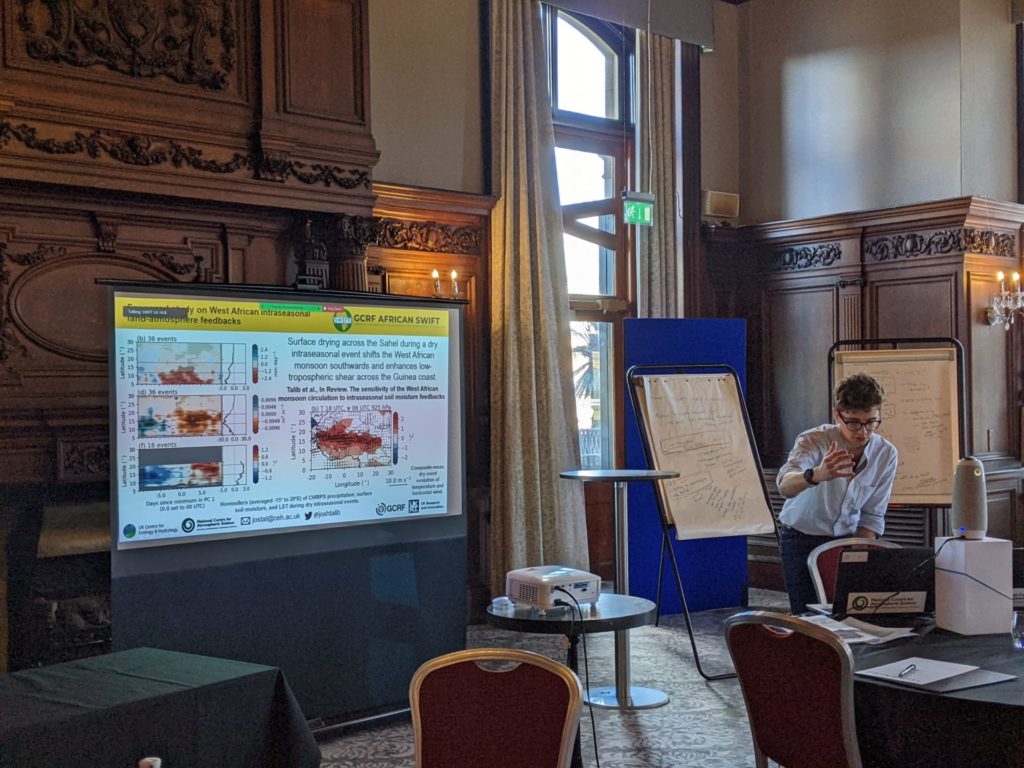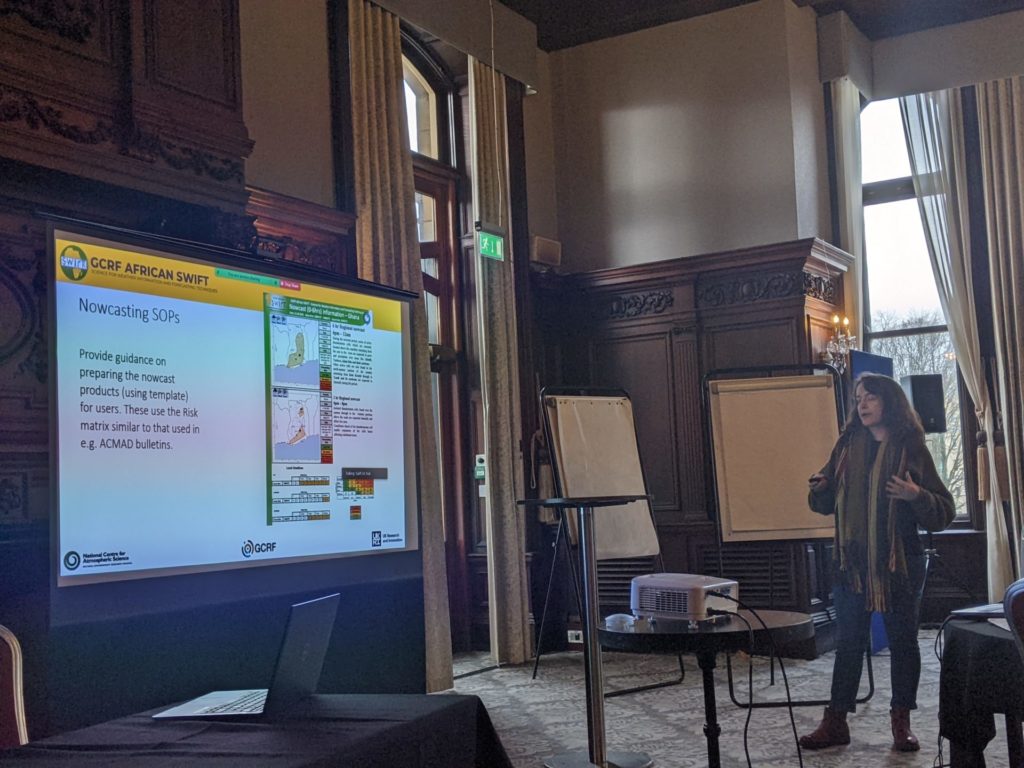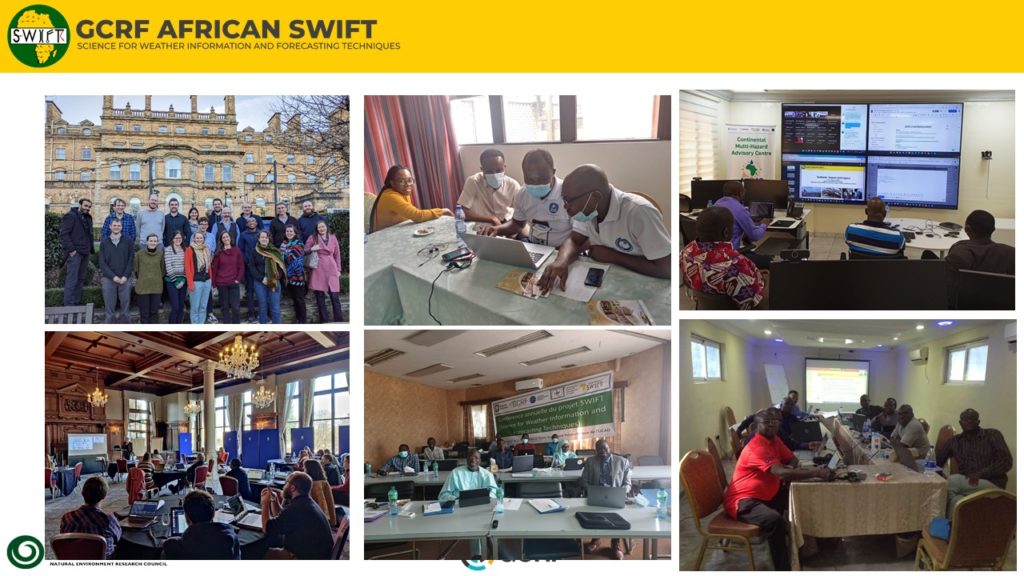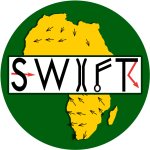A reflection on the successes of the African SWIFT Science Meeting.
After five days of talks and discussions held both in regional centres and online internationally, the local hubs of the SWIFT science meeting came to a close on Friday 11 February. We reflect on the results of the week from the perspective of the UK hub.
In online sessions alone, the first week of the final SWIFT science meeting brought together approximately 50 speakers across 6 different countries to lead sessions on topics ranging from meteorological research to forecast co-production and evaluation. In addition, regional centres have been organising country-specific sessions for each of the five days of the meeting. Joshua Talib, Climate scientist at UK Centre of Ecology and Hydrology, commented that “whilst it was a shame that UK and African scientists could not meet in-person, we had a fantastic week interacting between work packages, institutions, and countries in a multi-hub hybrid meeting”.

Despite the ambitious organisational work required, the hybrid conference ran smoothly and with many successes. Using digital platforms (sli.do and Zoom), presentations were delivered from continent to continent, facilitating questions and discussions from 112 attendees throughout the week.
Interaction between hubs was a central focus throughout the meeting. The work of SWIFT in each of the five partner countries was summarised in the first session, where a broad vision of past successes and future implications of the project was delivered in carefully managed, short presentations. International discussions were held throughout the meeting, including several sessions on the legacy of SWIFT.
The meeting also gave a platform for technical scientific discussion, both regionally and internationally. Online presentation sessions were given on all SWIFT work packages (satellite remote sensing, nowcasting, synoptic forecasting, convection permitting models, and seasonal to subseasonal forecasting), allowing scientists to discuss important new research and gain feedback on their own work.
In addition to scientific research, SWIFT works to bridge the gap between meteorological research and operations. Sessions on forecast co-production and analyses of users’ needs gave an opportunity for researchers and meteorological services to look beyond the work of SWIFT in co-production and to discuss the future of forecast development in Africa.
Time was given to discussion of the three testbeds that took place through SWIFT. Testbeds are relatively new and yet to be standardised in Africa, so discussions took place relating to future use of testbeds and the successes of the SWIFT testbeds.

The week finished with a discussion of vision in African forecasting beyond SWIFT. All hubs were able to collate discussions held during the week and shared thoughts on priorities and ideas for future developments in forecasting. Common themes were noted, such as a need for numerical weather prediction and nowcasting products, as well as original ideas such as engagement with commercial weather services.
While the first week of the meeting was characterized by open discussions and a detailed overview of SWIFT, the virtual seminars in week 2 looks to clearly outline the successes and legacy of SWIFT to a wider audience. After a productive and forward-looking first week, we are excited to continue our discussions!

